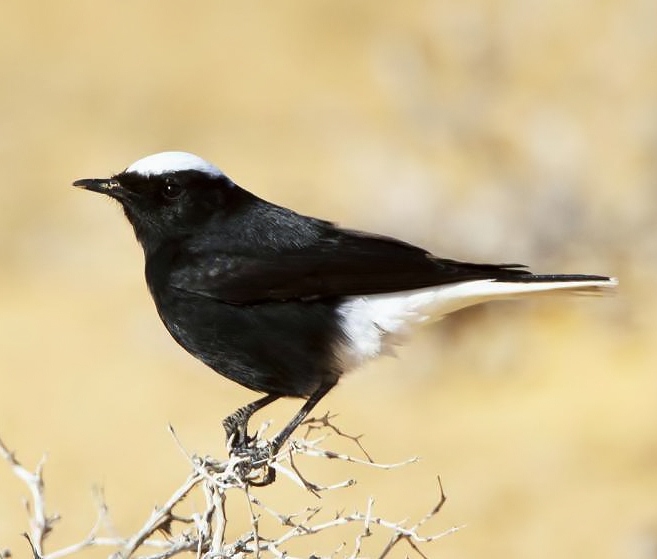 |
| Photo by Marco Valentini (Internet Bird Collection) |
Common name:
white-tailed wheatear (en); chasco-de-barrete-branco (pt); traquet á tête blanche (fr); collalba negra de Brehm (es); Saharaschmätzer (de)
Taxonomy:
Order Passeriformes
Family Muscicapidae
Range:
This species is found in North Africa and the Middle East, from Morocco and Mauritania to Sudan and Saudi Arabia.
Size:
These birds are 17-18 cm long and have a wingspan of 27-29 cm. They weigh 23-32 g.
Habitat:
The white-tailed wheatear is mostly found in hot deserts, namely in rocky areas, but also in dry grasslands and scrublands.
Diet:
They mainly feed on insects, which they catch both in flight and on the ground, but they also eat plant material and small reptiles.
Breeding:
White-tailed wheatears breed in February-May. The nest is a cup of dry grasses and twigs, lined with wool and feathers, placed in a hole in rocks, under stones, in banks, or occasionally in the walls of buildings. The female lays 3-5 eggs, which she incubates alone for 14-17 days. The chicks fledge 14-17 days after hatching.
Conservation:
IUCN status – LC (Least Concern)
This species has a very large breeding range and is described as generally abundant in suitable habitat. The population is suspected to be stable in the absence of evidence for any declines or substantial threats.







